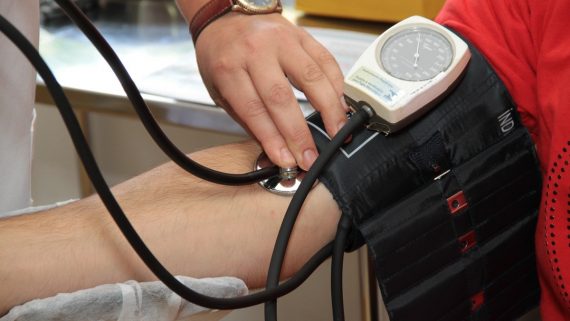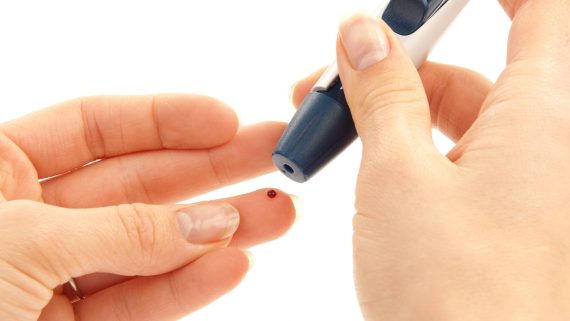Looking after your skin is important for everyone, but it’s even more so for people living with diabetes. Diabetes can accelerate the natural process of your skin drying out as you age.
Why your skin is important
The skin is the body’s largest organ and performs several important roles in protecting your health. Your skin acts as a barrier between the dry and potentially dangerous outside and the venerable inside mechanisms of our bodies. Glands associated with hair follicles produce the oils and sweat that maintain the barrier. The nervous system controls these glands and if damage occurs and the skin dries out, small cracks can occur which signifies the barrier has been broken. Moisture from beneath the skin can then leak out and lead to more cracking, which can increase the risk of infection and skin discomfort.
As we get older, we gradually lose the individual nerve fibres in our body which means that our skin cannot protect us as well and we are more susceptible to damaging factors from outside, such as dryness.
Dry skin
Damage to the small blood vessels and nerves commo
If you have diabetes, exercise offers surprising benefits. As it lowers your stress levels, it lowers your blood sugar level.
How much exercise is right for you? For people with diabetes, The National Institutes of Health (NIH) recommends 150 minutes of aerobic exercise each week. Exercise is so important for people with diabetes that the American Diabetes Association recommends that these patients miss no more than two days of aerobic exercise in a row.
5 exercises for people with diabetes
There are many exercises that will benefit people with diabetes. Here are five we recommend:
- Walking — Because anyone can do it almost anywhere, walking is the most popular exercise and one we highly recommend for people with diabetes. Thirty minutes to one hour of brisk walking, three times each week is a great, easy way to increase your physical activity.
- Tai Chi —This Chinese form of exercise uses slow, smooth body movements to relax the mind and body. In 2009, researchers at the University of Florida studied 62 Korean women assigned to one of two groups—a control group and an exercise group that began
Discovered in 1921 by Frederick Banting and Charles Best, insulin is the hormone that allows glucose (sugar) to get into the cells of our body that need glucose for energy. Insulin is produced by the beta cells of the pancreas which reside in specialized structures called the islets of Langerhans in the pancreas.
Every living mammal needs insulin to survive. Humans, cats, dogs, pigs, cows, and even dolphins all need insulin to maintain healthy blood sugar levels. Without enough insulin, your blood sugar can rise to dangerously high levels.
Malfunctions in Insulin Production and Utilization: A Hallmark of Diabetes
People with pre-diabetes or type 2 diabetes do not make enough insulin, or their bodies are unable to make use of the insulin they are producing. Insulin resistance is commonly an aspect of pre-diabetes and type 2 diabetes in which the body needs more and more insulin to do the job of maintaining healthy blood sugar levels that it used to do with a lesser amount of insulin.
Vacation—all you ever wanted. As exciting as it is to finally head out on a much-anticipated getaway, having a health condition like diabetes can add to the packing and prep challenge. How to pack light with all that medication and insulin? What snacks can travel safely on an airplane (and through TSA’s tight bag checks)? What if you have a health issue hundreds (or thousands) of miles away from your trusted doctors?
When it comes to travelling with diabetes, extra planning can go a long way toward making you feel comfortable. Here are some tips to manage diabetes while travelling, whether it’s a flight to Greece or a camping trip a couple of hours away.
- Don’t focus on packing ultra light. Yes, it’s sometimes ideal to arrive at the airport with only a carry-on bag, but this may not be the safest option for you if it means compromising your needs. Pack twice as much medication and blood-testing supplies as you think you’ll need.
- Wear a medical ID bracelet or necklace to alert others that you have diabetes, just in case of an emergency. (It probably won’t happen, but it’s best to be prepared.)
- Learn how to say “I have diabetes and I need sugar or orange juice, please,” in the language of the place you are visiting. This
Type 2 diabetes is a serious condition, but the number-one cause of death for people with type 2 diabetes is actually heart disease. Heart disease and diabetes often occur together, and the link between them is high blood sugar.
Heart disease is the leading cause of death in the United States. In fact, the CDC reports heart disease is responsible for one of every four deaths. For this reason, it’s essential for anyone with type 2 diabetes to understand the link between heart disease and diabetes and take proper preventative measures to manage or reverse their diabetes.
If you have type 2 diabetes, you probably already know about insulin resistance. Because the body does not use insulin properly, the pancreas tries to compensate by making extra insulin. Over time, it can’t keep up, and the body cannot maintain normal blood glucose levels.
Those high glucose levels can harden arteries over time. Your arteries need to be spacious and flexible to get proper blood and oxygen circulation throughout the body; tight and rigid arteries force the heart to work harder to pump the blood around. This leads to heart disease.
Additionally, people with type 2 diabe
A little daily exercise can go a long way, especially for those with type 2 diabetes. “When I talk to patients with type 2 diabetes about exercise, I put it this way,” says diabetologist Dr Paresh Ved. “If you could do something that could lower your A1C, improve your stress level, improve your sleep, improve your health, and had no side effects, you do it?” The answer, he says, is usually yes.
Exercise can actually bring blood glucose levels down, according to the American Diabetes Association. When you work out, your muscles need to use the available insulin to take in glucose for energy, thus lowering the levels in the bloodstream.
Not only does this lower blood glucose levels temporarily, but sticking with a regular workout groove can lower your A1C over time. (Learn more about the A1C test for managing diabetes here.)
Adding exercise to your daily routine helps protect your heart, too, which is critical because diabetes increases your heart disease risk significantly. For example, regular exercise helps lower blood pressure, which makes it easier for the heart to pump oxygen-rich blood thr
There are various possible causes of a high blood sugar level in the morning:
- The Dawn Phenomenon which is a natural rise in blood sugar due to a surge of hormones secreted at night which trigger your liver to dump sugar into your blood to help prepare you for the day.
- Having high blood sugar from the night before which continue through the night into the morning.
- Reactive hyperglycemia which is also called the Somogyi Effect. This is when low blood sugar in the middle of the night triggers your liver to dump sugar into your blood in an attempt to stabilize your blood sugar.
Why Are My Blood Sugars High in the Morning?

There is a simple strategy for diagnosing the source of high blood sugars in the morning.
- Test your blood sugar before bed.
- Test your blood sugar in the middle of
There are many myths about diabetes which can make separating fact from fiction difficult. To cut through the confusion, we’ve broken down some of the common misconceptions:
Myth- Diabetes is not serious
Fact – There is no such thing as “mild” diabetes. All types of diabetes are serious and can lead to complications if not well managed. Diabetes can affect the quality of life and can reduce life expectancy.
Myth- All types of diabetes are the same
Fact – There are a number of types of diabetes. The most common are type 1, type 2 and gestational diabetes Other forms of diabetes are less common. Each type of diabetes has different causes and may be managed in different ways but once someone has any type of diabetes except gestational diabetes, it needs to be managed every day. Gestational diabetes goes away after pregnancy, however, it does significantly increase someone’s risk of developing type 2 diabetes later in life. All types of diabetes are complex and serious.
Myth – Diabetes can be prevented
Fact
• Depression is a very real condition and is becoming increasingly common in the general population; approximately one in four people will experience depression sometime in their adult life. For people who live with diabetes, this figure is even higher.
• Up to 50% of people with diabetes are thought to also have a mental illness such as depression or anxiety.
• People with depression and diabetes may find it hard to maintain daily diabetes care
What is Depression?
Depression is not just low mood but a serious illness. People with depression find it hard to do normal activities and function from day to day. Depression has serious effects on physical as well as mental health.
Link between diabetes and depression
Research shows that having diabetes more than doubles the risk of developing depression. Living with a chronic condition like diabetes, coping with biological and hormonal factors plus needing to manage the condition on a daily basis may increase the risk of depression.
Depression can increase the likelihood of developing diabetes complications. People with depression may find it harder to
According to the World Health Organization (WHO), India had 69.2 million people living with diabetes in 2015 and nearly 98 million people in India may have type 2 diabetes by 2030. When it comes to diabetes, people are usually unaware of its causes and symptoms or have misconceptions and confusions of the same. Our diabetologist Dr. Paresh Ved and our in-house dietician have compiled this complete Diabetes Care Guide to clear all your doubts and provide some do’s and don’ts for all diabetics.
Diabetes Basics:
What is Diabetes?
What is prediabetes?
Diabetes and Blood Glucose
Type 1 Diabetes
Type 2 Diabetes
FAQs about diabetes










